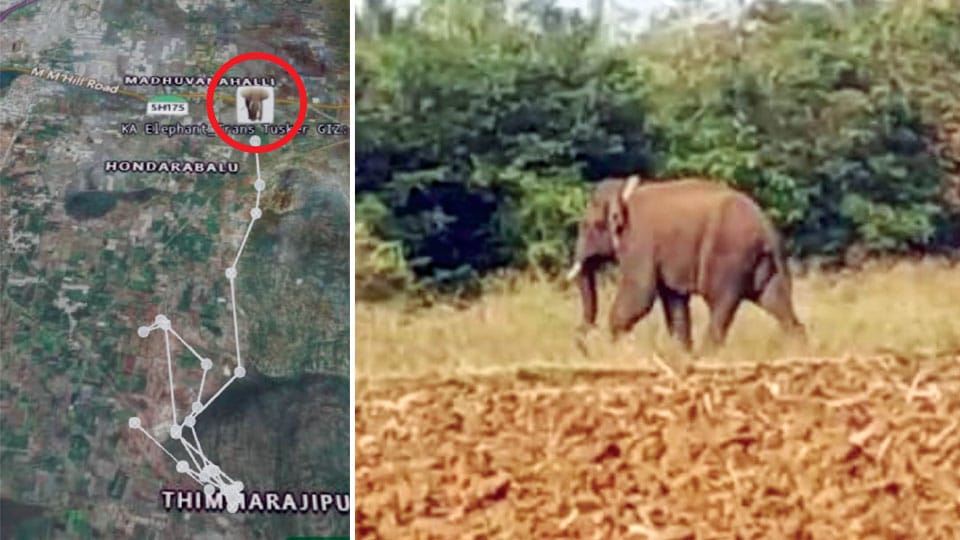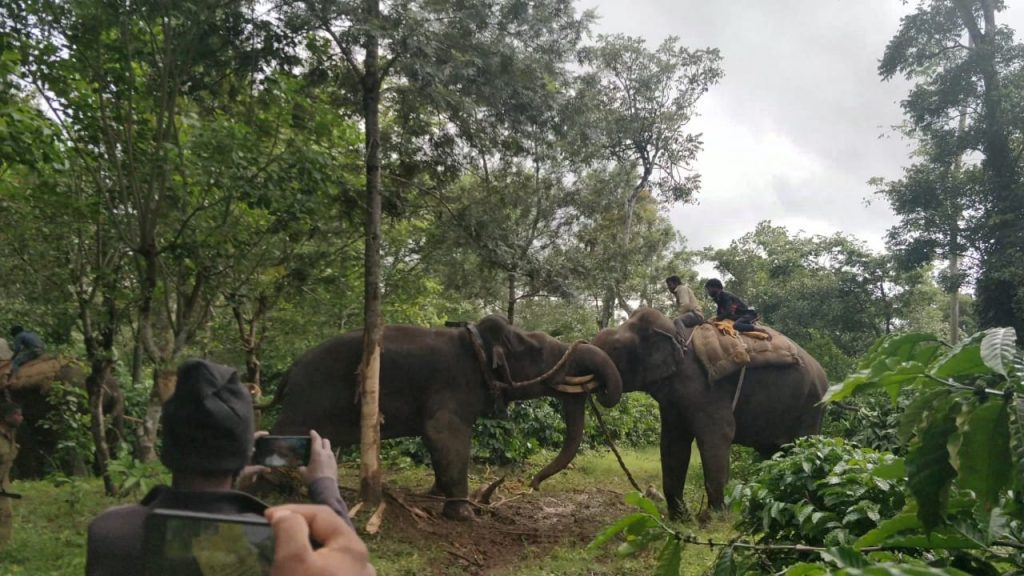Elephants are perhaps the most important animals in a forest area as they help in enhancing the biodiversity of the region. However, these majestic animals can also cause severe damage to life and property if they become rampant. At such a time, it becomes extremely important to bring them under control, or else they tend to destroy everything that comes in their way.
Facing issues of rogue elephants stepping into farms and residential areas near the forests of Karnataka and destroying life and property, senior IFS officer, Mr. Vijay Kumar Gogi came up with a solution to the problem.
In an exclusive conversation with Indian Masterminds, the senior officer talked about his idea of ‘radio collaring’ the elephants and how it has proved to be beneficial.

CURE FOR PROBLEMATIC ELEPHANTS
Posted as the Principal Chief Conservator of Forest Wildlife and the Chief Wildlife Warden of Karnataka, Mr. Gogi came up with an idea to deal with problematic elephants in the jungles that are known to harm people and property.
The 1988 batch Karnataka Cadre officer told Indian Masterminds, “We are identifying such elephants that have unleashed destruction in several regions, and have harmed various people in the past with their recklessness. To keep a record of them and track their each and every movement, we have started putting a radio collar on them.”
The radio collar that is being put on elephants is equipped with GPS and helps the forest officers in keeping track of the elephant and all its movements.

BRINGING THEM BACK INTO THEIR OWN HABITAT
Tracking these rogue elephants with the help of GPS-enabled radio collars has helped the forest officials to catch the said elephant harmlessly and then trans-locate them into their place of origin.
“We are keeping a track on them and trans-locating them into deeper forests. We have already acclimatized numerous elephants into the depth of forests,” Mr. Gogi told Indian Masterminds.
With this measure, the forest department of Karnataka has been able to successfully prevent numerous animal and human conflicts, thereby saving the lives and properties of many.
According to the senior IFS officer, not all elephants need collaring. “We only put radio collars on the rogue ones who are difficult to manage and are destructive; the ones who are known to chase other animals and injure human beings,” stated Mr. Gogi.

KEEPING RECORDS OF ROGUE ELEPHANTS
Furthermore, the officer stated that the department keeps a track of the elephants on an hourly basis. It keeps a record of all the elephants and if any of them comes to the fringe of the hamlets or strays away from the forest, it is tracked down through the radio chip and again pushed into the deeper forests.
“The chip installed on the radio collar makes it easy for us to track them and catch them before they cause mayhem.There was an incident where a dangerous elephant strayed 60-70 kilometers away from the forests. We made a successful attempt to catch it and within with 5-6 hours it was again released into the wilderness,” Mr. Gogi told Indian Masterminds.
As of now, the department has only radio-collared dangerous elephants but soon they will collar all the animals involved in dangerous conflicts. It is a long-term project and involves monitoring.



































